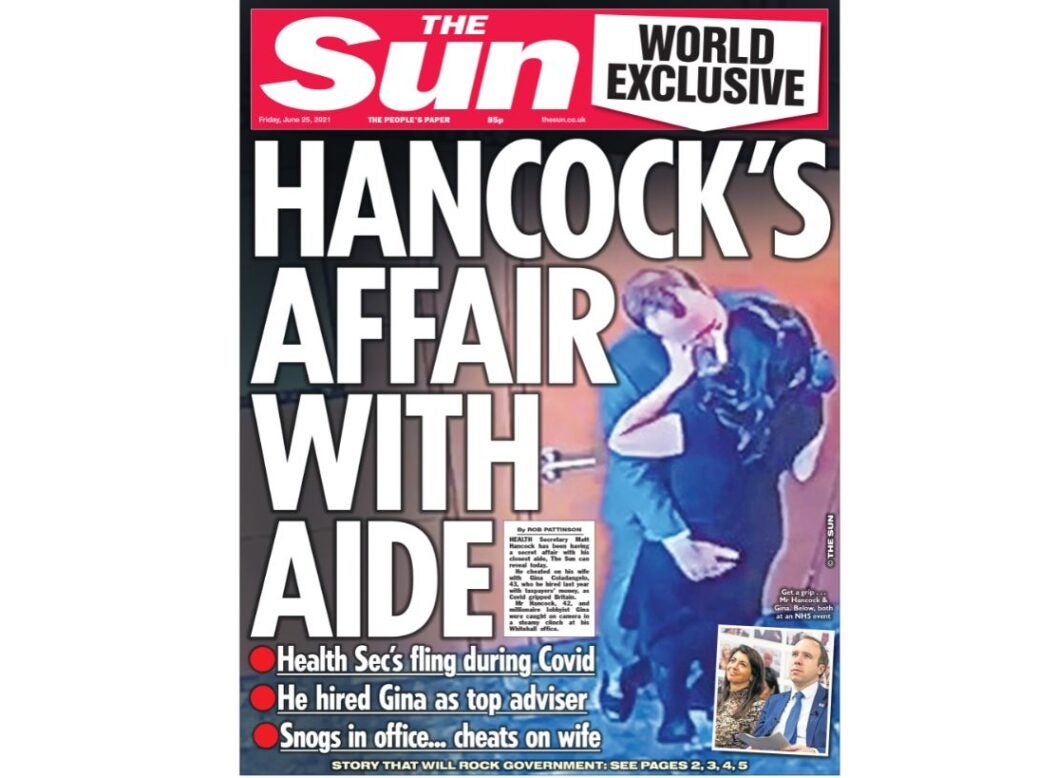
Updated 19 July:
Sun editor Victoria Newton has described the ICO raid on the homes of two suspected whistleblowers as “outrageous”.
Speaking on The Andrew Marr Show on Sunday, Newton said: “The idea that the Information Commissioner thought that it was right to do that when the story was clearly in the public interest and all this is going to do is, in the future, stop whistleblowers coming forward to papers like the Sun or the Mail or the Telegraph who got MPs’ expenses and indeed the BBC relies on whistleblowers to bring scandals to our attention.
“We can’t have a democracy where the only place somebody can go to expose wrongdoing is the place where they work because it won’t get exposed, so I’m just staggered really that they thought it was in the public interest to do this.”
Newton reiterated her previous statement that she would rather go to jail than give up the Sun’s source.
She said authorities had not yet asked The Sun for any information “but if they do we’ll fight them in court”.
Original story 16 July:
Concerns have been raised over the protection of whistleblowers and journalistic sources after the Information Commissioner raided two homes in the south of England to find the security officials who may have leaked CCTV images from Matt Hancock’s office to The Sun.
The pictures prompted Hancock’s resignation because they showed him privately breaching social distancing rules while publicly promoting a very different narrative.
The ICO is investigating a potential breach of Section 170 of the Data Protection Act 2018 which says it is an offence to obtain or disclose personal data without the consent of the controller.
But there is a defence for preventing or detecting crime and acting in the public interest.
Emcor, which provided CCTV services at the Department of Health and Social Care, made the report to the ICO.
It seems that CCTV images were potentially captured on a mobile phone from a TV screen. The ICO said it has seized personal electronic devices following the raids.
Director of investigations at the ICO Steve Eckersley said: “It’s vital that all people, including employees and visitors to public buildings, have trust and confidence in the protection of their personal data captured by CCTV.
“In these circumstances, the ICO aims to react swiftly and effectively to investigate where there is a risk that other people may have unlawfully obtained personal data.
“We have an ongoing investigation into criminal matters and will not be commenting further until it is concluded.”
Chairman of the Commons culture committee Julian Knight said: “As a general principle freedom of the press and their ability to act in the public interest is a cornerstone of our democracy and we endanger it at our peril.”
The Sun described the ICO’s actions as a Raid of Shame, quoting Labour shadow security minister Conor McGinn who said: “This story was clearly in the public interest. Any illegality must be investigated but we need to ensure that whistle-blowers can continue to play their vital part in the keeping organisations accountable.”
Lib Dem leader Ed Davey said: “The Sun were right to publish these photos, they were clearly in the public interest. The Sun is also absolutely right to protect its sources.”
And Sam Armstrong, of think tank the Henry Jackson Society, said: “If a national security leak has indeed been ruled out by police, this is nothing more than a heavy-handed attempt by a bureaucratic agency to intimidate the source of a story in the public interest.”
It is highly unusual of the ICO to use police-style powers against the press.
The last high-profile case was Operation Motorman in 2002 when it raided the home of private investigator Steve Whittamore who was being widely used by newspapers to sell them illegally obtained information.
In 2015 The Sun launched a Whistleblowers’ Charter and secure dropbox in a bid to provide greater protection for its sources. In 2011, in the wake of the hacking scandal, Sun parent company News Corp shared details of paid public sector informants with the Met Police leading to dozens being jailed.
In 2014 six police officers and members of the public were arrested for leaking details to The Sun of “plebgate” – an incident where then cabinet minister Andrew Mitchell called police officers outside the gates of Downing Street “fucking plebs”. One police officer was imprisoned for lying to the police but the CPS said the other prosecutions were not in the public interest.
Previously UK police and government have used the ancient common law offence of misconduct in a public office to target public employees who leak stories to the press.
But if the Sun source was a private contractor they may not be covered by this law.
The Bribery Act is another potential way of criminalising sources, but it is not known if money changed hands for The Sun story.
The Sun Matt Hancock story has echoes of MPs’ expenses in 2009 when a private contractor sold The Daily Telegraph full unredacted details of MPs’ expenses for £110,000. No prosecution was mounted, presumably because the revelations were so firmly in the public interest.
But under the Bribery Act 2010, which has no public interest defence, the Telegraph payment could have faced prosecution.
Read more: Matt Hancock snog scoop and media law
Email pged@pressgazette.co.uk to point out mistakes, provide story tips or send in a letter for publication on our "Letters Page" blog
